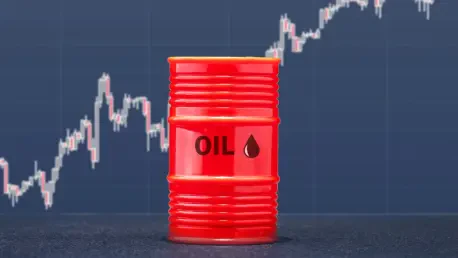In today’s intricate web of global economies, oil remains a pivotal force driving economic activities across a myriad of sectors. Priya Jaiswal, a distinguished expert in Banking, Business, and Finance, provides an invaluable insight into the dynamics of the oil market, elucidating its correlation with global economic conditions, trade, currency fluctuations, industrial growth, sustainability efforts, transportation, and the impact of economic policies.
How does the demand for oil correlate with global economic conditions?
The demand for oil is deeply intertwined with the global economic pulse. As economies expand, industries require more energy to sustain growth, leading to increased oil demand in sectors like transportation and manufacturing. However, during periods of economic slowdown, industrial activity contracts, and we see a corresponding dip in oil consumption. This cyclical relationship highlights how integral oil is to sustaining economic vitality.
What role does trade play in the relationship between global economies and oil?
Trade dynamics are crucial in bridging global economies with oil. Countries that rely on oil imports and exports form complex interdependencies, where shifts in supply or trade policies can ripple across regions. For example, geopolitical events that disrupt supply chains can lead to uncertainties that affect both producer and consumer nations, reinforcing the notion that oil trade is a significant economic lever.
How does currency strength impact the affordability of oil for countries?
Currency fluctuations play a substantial role in determining oil affordability for nations. When a country’s currency weakens, oil imports become more expensive, stressing financial resources, especially in oil-dependent economies. Conversely, oil-producing countries might see shifts in revenue and competitiveness, depending on currency trends, illustrating the delicate balance in currency-driven energy markets.
In what ways does industrial growth affect energy consumption patterns?
Industrial growth directly correlates with a rise in energy consumption, prominently seen in emerging economies experiencing rapid industrialization. As they industrialize, their demand for oil intensifies, presenting a challenge in maintaining economic momentum. Established economies, on the other hand, may focus on energy-efficient technologies or alternative sources to manage fluctuating oil demands, highlighting diverse strategies among nations.
How is the global shift towards sustainability impacting oil markets and economies?
The global sustainability movement is progressively reshaping oil markets. While oil remains a primary energy source, countries are increasingly adopting renewable strategies, affecting conventional oil consumption patterns. For economies dependent on oil, this shift necessitates a balance between sustaining economic growth and achieving sustainability goals, posing a transformative challenge in long-term energy planning.
How does transportation contribute to the relationship between oil markets and global commerce?
Transportation forms a central artery in global commerce, heavily reliant on oil as a fuel source for logistics—be it shipping or aviation. Variations in global economic activity, such as changes in travel behavior or supply chain operations, reflect in the oil market’s sensitivity, underpinning the intricate bond between transportation, economic systems, and oil reliance.
What are the economic impacts of supply chain disruptions on the oil market?
Supply chain disruptions, stemming from bottlenecks, natural disasters, or political conflicts, significantly impact the oil market through altered pricing structures. These disruptions challenge economic stability, necessitating resilience and adaptability in global sectors, showcasing how economies must maneuver through unpredictability to maintain seamless operation.
How do emerging economies strategize their energy needs while addressing environmental concerns?
Emerging economies are often at the crossroads of fulfilling escalating energy needs while being mindful of environmental implications. Oil continues to play a firm role in their energy mix, offering a foundation for industrialization. Nevertheless, these economies gradually integrate sustainable practices to balance their development agenda, reflecting their strategic priorities in energy planning.
How do economic policies affect the integration of oil into national economic frameworks?
Economic policies are pivotal in shaping how oil fits into national frameworks. Through levers like tax structures, subsidies, or trade agreements, governments guide the integration process. Policies driving energy diversification or managing oil price fluctuations align with strategic long-term goals, emphasizing the active role of governance in energy-economic synergy.
What are the anticipated trends in the evolving relationship between global economies and oil markets?
The future of economies and oil markets is poised for evolution, driven by dynamics such as industrial activity, sustainable development objectives, and international trade. Acknowledging these trends offers foresight into how this interdependent relationship might adapt amid transforming energy landscapes, fostering economic resilience and alignment with global priorities in energy strategy.









